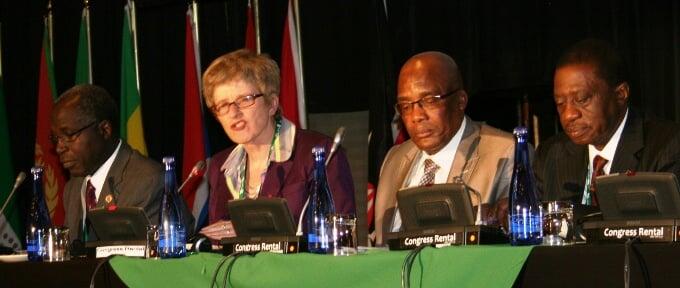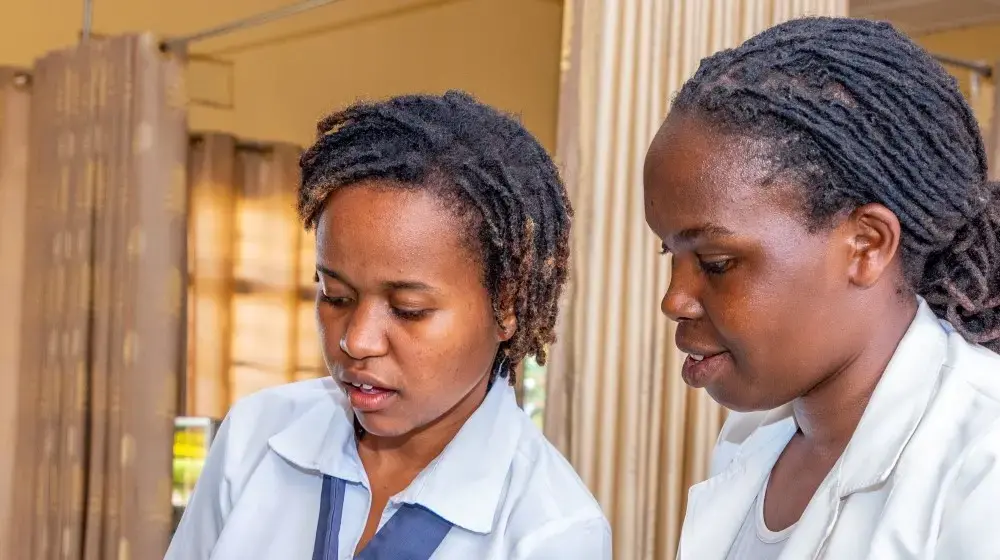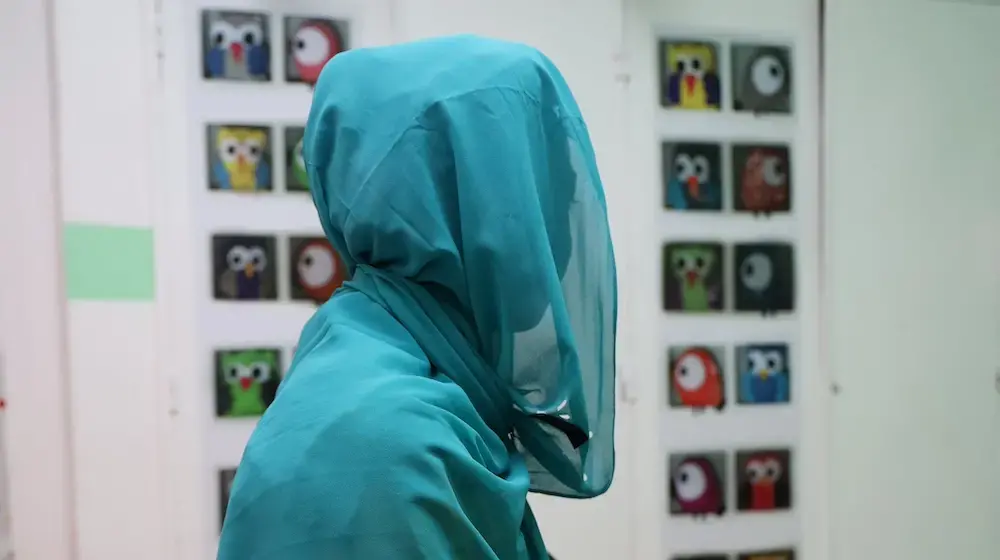JOHANNESBURG, South Africa – African Union Member States took a major step forward for maternal, neonatal and child health at the landmark First International Conference on Maternal, Newborn and Child Health (IMNCH). The historic event concluded on Saturday in Johannesburg, South Africa, after three days of intense discussions.
The need for an international conference on maternal health, as an opportunity to share best practices and enhance south-south cooperation, was identified at the CARMMA High-level Event in January 2013 at the 20th Ordinary Session of AU Assembly of Heads of State and Government.
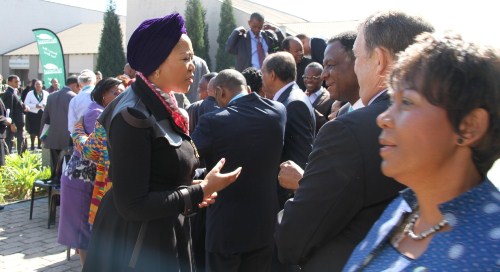
The IMNCH conference was co-hosted by the African Union Commission and the South African Government, and was attended by 28 health ministers and around 500 delegates including deputy ministers, UN agencies, development partners and civil society organizations. A preconference workshop on Maternal Death Surveillance and Response (MDSR) was attended by 170 participants. UNFPA helped organize the event and provided leadership at various sessions, as well as technical advice for an action-oriented outcome.
During the event, UNFPA Executive Director Dr. Babatunde Osotimehin had one-on-one discussions with nine health ministers, including Ethiopia, Malawi and South Africa.
The conference outcomes were presented at the closing ceremony in a Plan of Action Towards Ending Preventable MNCH Mortality. The communique was read out by the Ugandan Minister of Health, Dr. Ruhakana Rugunda, for discussion.
The event was a mark of the commitment of African leaders towards ending maternal and child mortality, and presented a “major step forward,” said Dr. Flavia Bustreo, WHO Assistant Director General for Family, Women’s and Children’s Health, at the closing ceremony.
Youth and women’s safety underscored
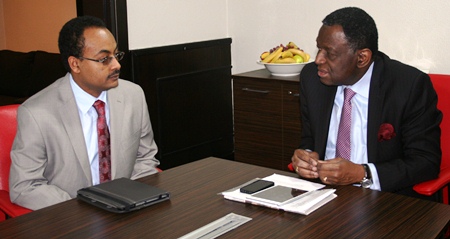
Young people featured high on the agenda. UNFPA Deputy Executive Director for Programmes, Kate Gilmore, speaking on behalf of Dr. Osotimehin for the UN, said that a critical thread at the conference was the presence of young people. She called for specific attention to adolescents and young people to be added into the MNCH agenda. “The price of not including them is too high. We cannot afford it,” she said. “It’s time to hold ourselves accountable to their place at the table as a priority. If there is one message we’ve been given, it is this: Tomorrow is today aged 10, and it is girl. If you change the life of that girl, you will change the world.”
Violence against women was also given prominence. Zeinab Bangura, Special Representative of the United Nations Secretary General on Sexual Violence in Conflict, spoke on the negative impact of war-time rape and said conflict-related sexual violence was a security issue that demanded a security response. “When women’s bodies are reduced to battlefields, it affects socio-economic development. The call to action to reduce maternal and child mortality and morbidity must also be a call for peace on the continent,” she said.
Call to implement the action plan
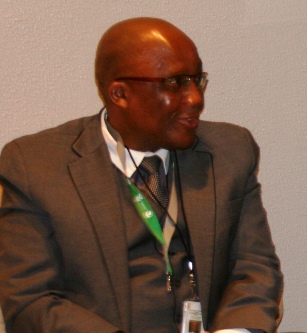
The conference presented a way forward in accelerating action towards the Millennium Development Goals (MDGs). Dr. Mustapha Sidiki Kaloko, AUC Commissioner for Social Affairs, said that while tremendous gains had been made in the past two decades to reduce maternal and child mortality, it was not enough to meet the MDGs, and not for lack of adequate policy prescriptions. “What we have perhaps lacked is the impetus for more action on the ground to implement what we already have. This is why at this conference we work towards consummating the gains we have already made, to map out together pragmatic, focused strategies.”
“We now have an action plan and we must implement it because the future of our continent and its aspirations are hinged upon our efforts to strengthen the foundation of our very existence. Success in any human endeavour is the preserve of those who persevere. Let us steer the cause with single-mindedness to see it through, to ensure the implementation of the plan of action […] for the sake of our women and the prospects of this continent.”
Dr. Aaron Motsoaledi, South African Minister of Health, in reflecting on the conference, urged the delegates to ensure the tools and processes shared were implemented. In particular, action was needed to reduce the stubbornly high newborn mortality rate on the continent, he said. The South African government is to launch an integrated school health programme “so that young people can grow up to be the boys and girls that we want them to be. In our country, we believe that we must invest in the youth, and we wish to suggest that this becomes a priority on the continent.”
Rights-based approach
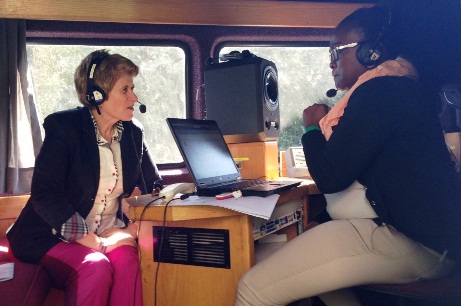
During the event, UNFPA Deputy Executive Director Kate Gilmore facilitated a discussion on rights-based programming for MNCH, which highlighted the role of a human rights-based approach as part of a comprehensive strategy to promote women’s and children’s health in Africa and in the post-2015 development agenda.
Prof. Julia Sloth-Nielse, Vice Chair of the African Committee of Experts on the Rights and Welfare of the Child at the University of the Western Cape, presented on the global and African charters on human rights and their application to health. The minimum core obligations, she said, were to review the national and subnational legal and policy environment, and to ensure universal coverage of quality primary health services.
Investing in youth crucial for global health
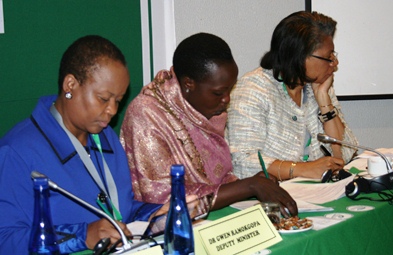
UNFPA Representative for South Africa, Dr. Julitta Onabanjo, led a session on Investing in Youth and Adolescent Health, where it was stated that investing in adolescents was crucial to reaching global health targets. Adolescents need comprehensive, accurate and developmentally appropriate sexuality education. More needs to be done to strengthen health sector capacity to provide adolescent-centred services. National governments have the authority and the responsibility of addressing social and cultural barriers in the provision of adolescent sexual and reproductive health education and services. Two critical enablers for addressing teen pregnancy were presented.
Importantly, a call was made for health systems to provide quality abortion care for young women, and for states to ensure that the policy, legislative and rights environments support young women’s access to contraceptives and pregnancy prevention.
Scorecards for improving health
A session on strategic interventions to enhance newborn and child health looked at how to take the principles and put them in action to make progress in improving women’s and child health. Ethiopian Minister of Health, Dr. Kesetebirhan Admasu, described Ethiopia’s MNCH scorecard for accountability and action, developed as part of their commitment to end all preventable diseases in child health. “It is really helping us improve performance, as it allows us to track and improve performance in the country,” he said.
Olawale I. Maiyegun, AUC Director for Social Affairs spoke on promoting accountability on the continent, both ‘upwards’ and ‘downwards’ to the communities that are served, and stressed that accountability should be at all levels. He urged all other Member States to institute a scorecard, as Ethiopia has done, at the national and regional levels.
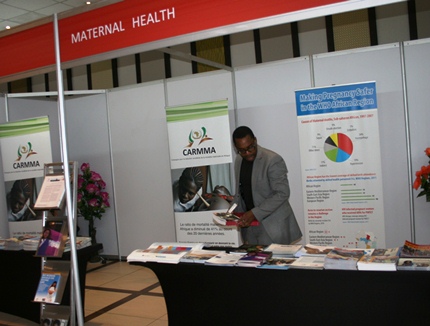
On days two and three, the delegates listened to panel discussions on innovations in MNCH; financing MNCH: investing in MNCH equals economic and social progress; addressing human resources for MNCH; strategic interventions to enhance newborn/child health; and accountability for MNCH.
Parallel sessions included newborn health, nutrition security, multi-sectoral workshops for non-state actors, maternal health policy at the national level, task shifting and MNCH, national health insurance schemes/universal health coverage, monitoring and evaluation, institutionalized mortality audits/reviews, investing in youth and adolescent health, community engagement for MNCH, and culture: male involvement in MNCH.
The conference received significant support from UNFPA in terms of funding from the United Kingdom’s Department for International Development (DfID), as well as support with organizing the event. A high-level UNFPA delegation included Executive Director Dr. Babatunde, Deputy Executive Director Kate Gilmore, Regional Director for West and Central Africa Benoit Kalasa, Deputy Regional Director Lina Mousa, Regional Director for ASRO Mohamed Abdel-Ahad and Chief Liaison Officer for Africa Serge Bounda.
Four UNFPA staff members played a key role as part of the action plan drafting committee –Yahya Kane, Liaison Office Consultant, Dr. Akinyele Dairo, ESARO Technical Adviser, Maha El-Adawy, ASRO Technical Adviser and Nestor Azandegbe, WCARO Technical Adviser.
~ Lindsay Barnes

